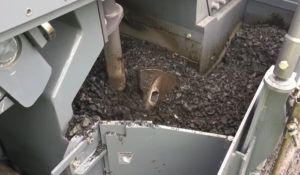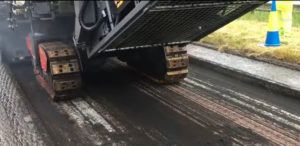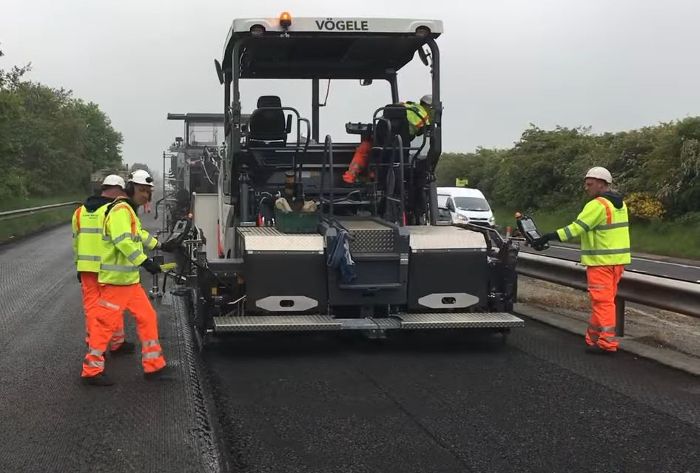Travelers will get a smoother driving experience and fewer roadwork delays due to the pioneering and environmentally-friendly technology being used by Highways England (HE) to resurface roads in north Yorkshire.
HE is taking an innovative approach to reconstructing a 10 mile (16km) stretch of the A1(M) southbound carriageway between Leeming and Ripon interchange. The environmentally friendly method will see around 100,000 tonnes of tarmac being laid in a faster manner than usual, with 60% less waste going to landfill. The technology, a machine called a cold repaver, grinds up the road to be recycled, combining it with fresh bitumen and cement before laying it back down immediately. The new technology means that up to 1,000 tonnes per hour can be resurfaced, compared to an average of 100 tonnes per hour using conventional methods. As well as being able to resurface larger areas, there is also a 75% reduction in the amount of quarried stone used on the job, and 70% fewer truck trips to and from site.
Currently, to resurface a road, the old pavement surface is planed off and taken away on a fleet of trucks as waste. The new material, which is often mixed off site, is brought in hot and is laid using a resurfacing machine. This is usually in truckloads of 20 tonnes, with an average of 350 tonnes per shift being brought in altogether, requiring at least 17 truck deliveries to the site. As well as its recycling capability, the cold repaving method results in less vehicle emissions from construction machinery. The resurfacing work on the A1(M) started this week (July 29), and is expected to be completed by the end of the year. Two lanes will remain open in both directions for the duration of the scheme and a speed limit will be in place for the safety of road workers and drivers.
“We used this method last year on the northbound carriageway and it was a great success. The machine allows us to reconstruct bigger areas of road much faster. The wagons don’t have to make anywhere near as many trips, and the new road lasts a lot longer, meaning we won’t need to repeat the process for up to 20 years,” explained HE’s project manager, Ted Chamberlain. “This technology was rolled out in 2016 when we resurfaced a stretch of the A1 in Northumberland, and the lessons we learnt from that work gave us the chance to refine the process and provide an even smoother journey for drivers.”
To watch a video of the cold repaver in action, click HERE





